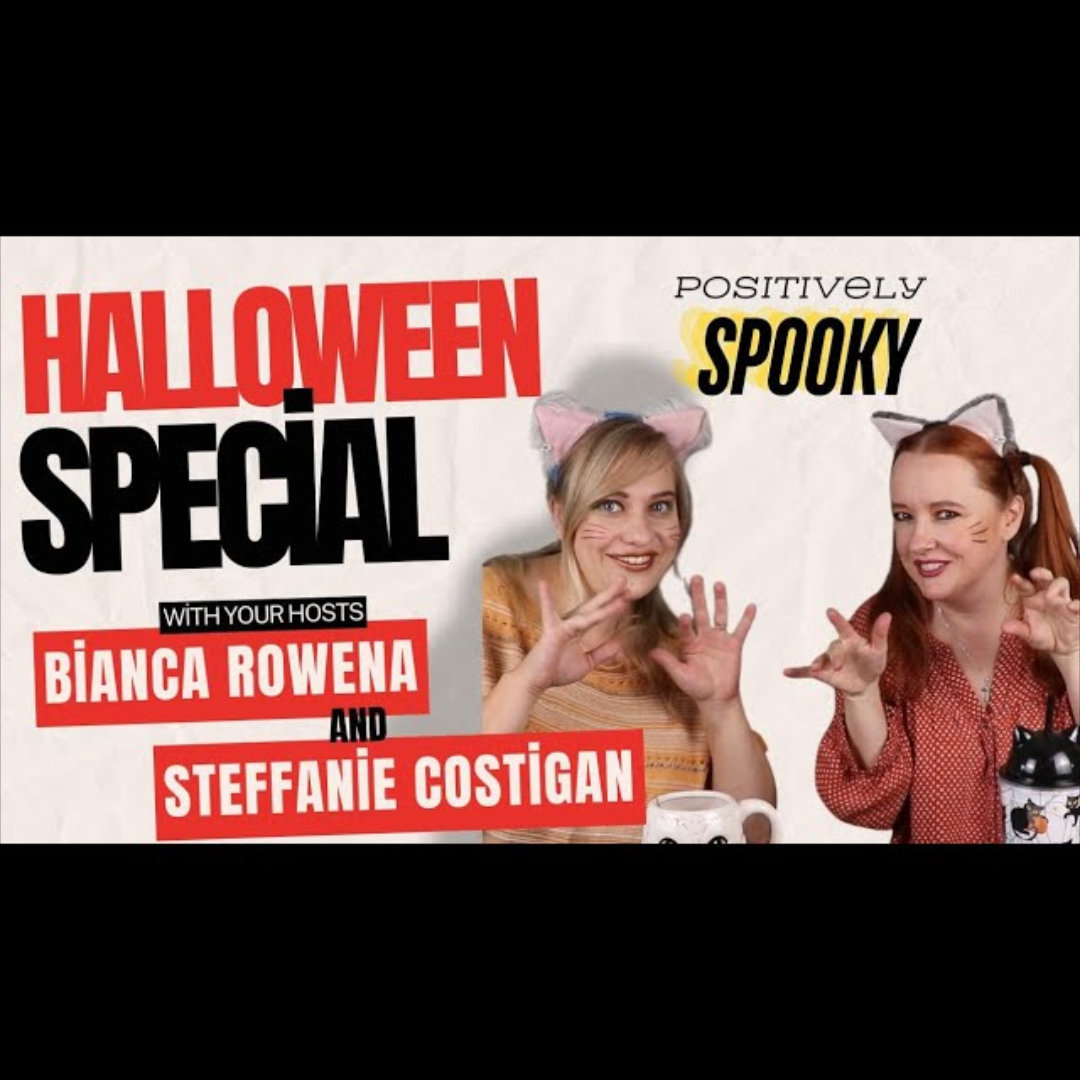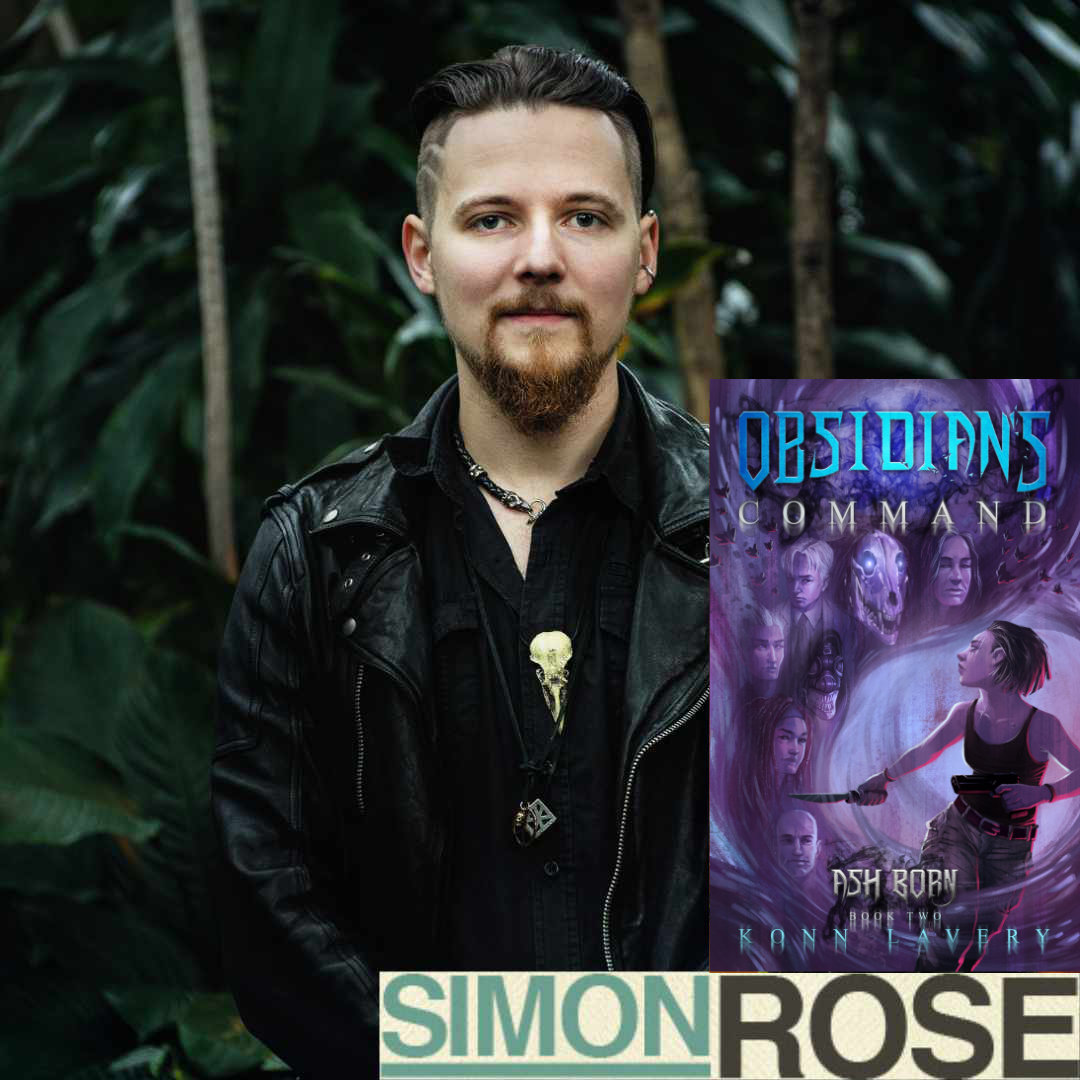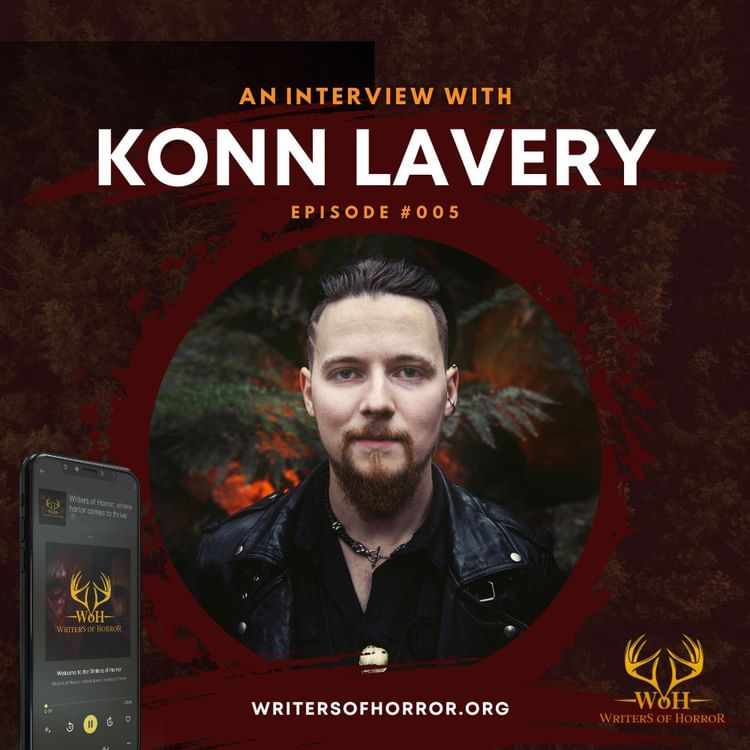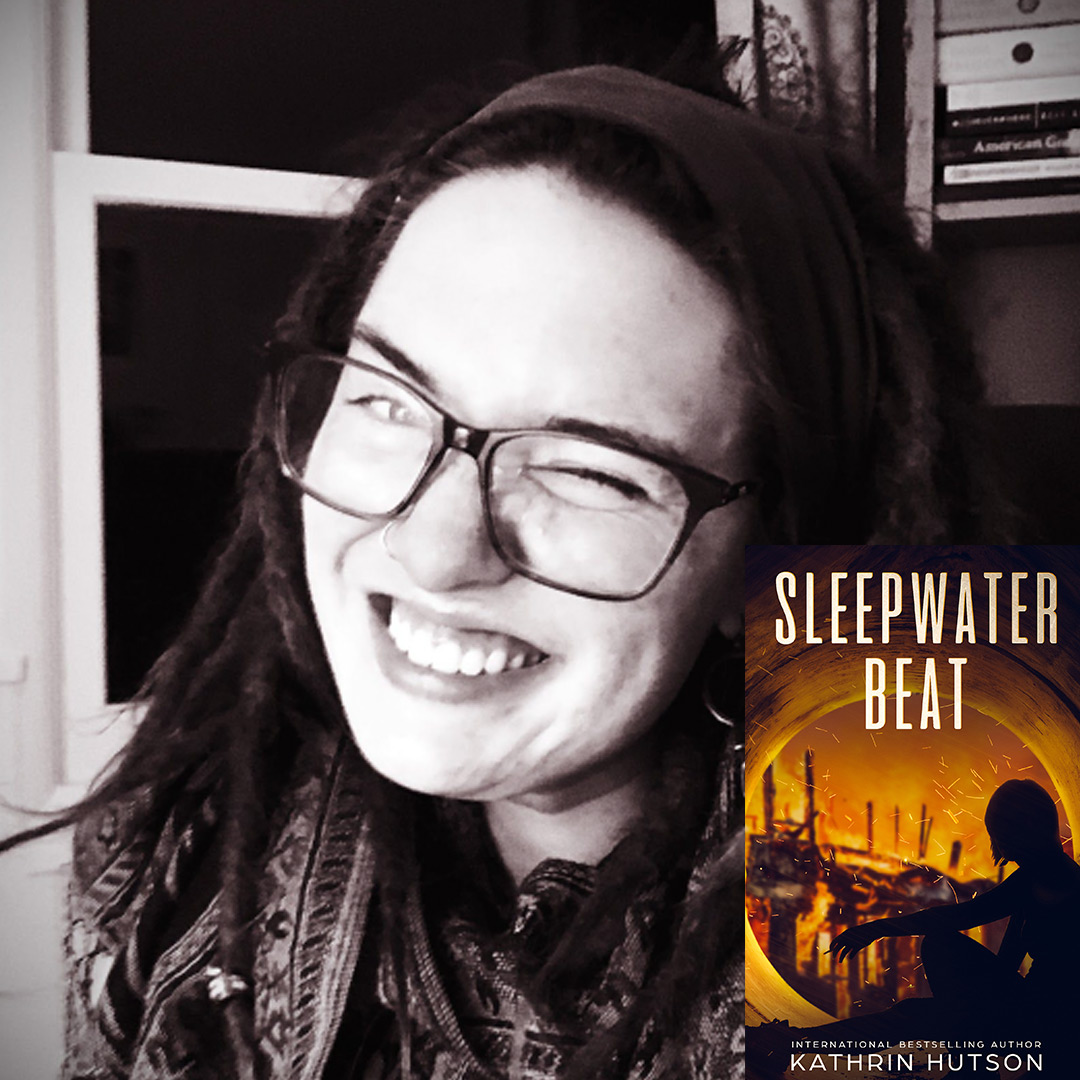
International Bestselling Author Kathrin Hutson Releases the First Installment of Dystopian Sci-Fi Series, Sleepwater Beat
Estimated Reading Time:
This month’s guest author is Kathrin Hutson. She has been writing fantasy and sci-fi since 2000 because she cannot get enough of tainted heroes, excruciating circumstances, impossible decisions, and Happy Never Afters. She also works as a ghost writer in almost all genres and as an editor through KLH CreateWorks. She lives with her husband, daughter and their two dogs. Let’s learn more about her writing by welcoming Kathrin Hutson to the blog!
Thank you for joining us Kathrin Hutson, congratulations on the release! Can you give us a brief introduction to yourself?
Yes! As far as general stuff about my writing is concerned, I go dark. Some people might ask, “When there’s already so much craziness in the world, why would you add more to it?” To this, my answer is pretty simple (and still so easy to forget within all that craziness): It’s not only about the darkness. More importantly, it’s also about how my characters (and people in general) grow and shift (or not) from within that darkness. Or in spite of it. I don’t write happy endings, and for one unsuspecting reader who took a chance on one of my books, “It wasn’t happy enough.” And I wear that like a badge of honor. But I do write hopeful endings, transformative endings, self-aware and self-empowered endings. For me, the fun isn’t in wrapping everything up in a little bow and calling it “happy”. It’s about reaching the darkest places, exploring them with painful clarity, and illuminating all the possibilities that arise from within.
Now that we went down that road… people seem constantly surprised in meeting me or speaking with me that I am a smiley, laughing, super approachable, ridiculously optimistic person. I wasn’t always that way, that’s for sure. Every person has their darkness and their light. Somehow, I think I’ve managed to siphon all my darkness into my career as an author, and everything that’s left fills my real life with joy and peace and excitement for where I am now and where I’m going in the future. That’s not always easy to maintain, either, with a two-year-old who’s smarter and more stubborn than both of her parents combined (and my husband and I can be a real handful). A few people have also called me a hippie, which is cool too. I’m pretty sure if I’d been born 45 years earlier, I would’ve rocked the 70s! And I do very much enjoy a well-aged bourbon.
Tell us about your new novel, Sleepwater Beat, and how you came about creating this series?
Sleepwater Beat was my first attempt at two things: 1) Dystopian Sci-Fi (or really anything not Dark Fantasy); and 2) an experimental writing style for a long short story of 35,000 words. #2 was a complete failure. I had this crazy idea for “the beat”, which is what these characters call this series’ brand of superpowers—eliciting physical responses in those who hear a very special kind of speaking. Then I thought I could recreate the effect of storytelling-by-vignette a la Memento, only why go backward in time chronologically? Let’s try mixing up the timeline so it makes no sense! That’s what I did. I literally listed each scene on one line, cut them up into little strips, and rearranged them so that no two scenes were placed chronologically together (either backward or forward) with no discernible pattern. It was… interesting. My writing workshop at the time, Charleston Writers Group in Charleston, SC, said pretty much the same. Great writing, interesting concept, wtf is going on with the order of these scenes, and oh, hey! You should turn this into a novel!
Their enthusiasm was so contagious, I did exactly that. I didn’t think I had it in me to turn this awkward short story into a novel. There was so much literary surgery that it took me two years. And a lot of self-doubt, frustration, terror, and pretty much all the emotions I had never felt about any other work I’ve ever written. I did keep most of the “flashback” scenes from Leo’s past and a bit of an unconventional story method in Part 1 (alternating between the present storyline, those flashbacks of her life, and short interludes of dystopian world-building revealed through news-report transcripts. So far, I’ve heard that I captured the “fake news” vibe perfectly. I’ll let readers speculate who that was modeled after…) When I’d included all those and strung them together into the narrative of Leo’s present, I hit a bit of a wall with continuing. Because I realized that Sleepwater Beat as a novel was actually a form of me telling my own story.
That was where the terror really came from. I have never put as much of myself into a main character as I put into Leo Tieffler. I’m definitely not as brooding and anti-social (thank goodness), and I really do care what people think of me personally despite having developed a thick skin necessary for any author. Of course, the details are different, but the parallels were really astounding. Many of the characters from Leo’s past were inspired by real people in my life. So many of those flashback scenes were inspired by real events I did actually experience. And many, many relationships throughout the book reflect in a staggering way a select few relationships I’ve had myself during my relatively short life. At one point, I thought I was writing myself and was terrified that it would seriously detract from the story. At another point, I struggled desperately to write all the social and economic commentary touched upon through this book as subtly as possible… before agonizing over the possibility that it just wasn’t screaming loud enough.
Now that it’s out, now that I’ve gotten feedback from readers and fans (and not just my alpha and beta readers, whose opinions I value quite a lot), I think I’ve done a pretty decent job of mixing it all up to let Sleepwater Beat be its own story. And it very much is.
How many books can readers expect to find in your new sci-fi series? Or is this a secret?
Well, this is Book 1 of the Blue Helix series, so of course there will be more. I already have Book 2 brewing in the primordial ooze of creativity that is my writing mind. All I can say for sure is that there will be at least three books. Most likely more. And as a pantser, I can’t really say more than that, because I won’t have any clue myself until I sit down and put it all to paper. When it feels finished and the characters quit begging for their stories to be exposed, then I guess it’ll be done.
You have a love of writing wild characters, and your new series features an LGBT component, how did come to be?
The first answer for that is that it felt right for the story. Leo isn’t a “wild character”, by any means. The fact that I wrote an LGBT main character isn’t particularly wild either. But she encounters other wild characters, and she gets flung into some pretty wild circumstances. I also wanted her to be real—existing within that gray area encompassing where she belongs, where her loyalties lie, who she trusts, what she’s willing to do, how far she’s willing to go… and, yes, who she’s attracted to. I also wanted to give her a little bit of a break within all her struggles by adding something like a love interest. It’s not very romantic (romance exists in all of my work, but none of it is particularly “romantic”. That’s the one genre I just can’t pin down, and I’m totally okay with that). In the original failed short-story experiment, Leo and her “mentor” Karl (for lack of a better term) with the organization called Sleepwater had a bit of a fling. Honestly, it felt like shoving two strangers’ heads together and saying, “Great, now kiss each other. And enjoy it!” So I dropped that in the novel.
Leo’s romantic relationship with Alex, a character from her past, was there to show the side of this main character that wanted to be a protector—someone who’d never been cared for herself and who knew the consequences of being abandoned by those who were supposed to look after her. She wanted to be that for Alex so badly that she took it a little too far, and then her fear of losing Alex became the self-fulfilling prophecy of becoming just like the people in her life who’d dropped Leo without a second thought.
Leo’s “romantic” relationship with Kaylee, another character with the beat who’s a part of Sleepwater, is definitely not as easily defined. Mostly, Kaylee is the first person who’s ever wanted something very specific from Leo for an incredibly vague reason. At first. And Leo comes to recognize that a part of her likes being told what to do (by Kaylee) when there doesn’t seem to be any ulterior motives. Ulterior motives are all Leo has really ever known, so the brutal honesty and the unapologetic requests are refreshing for her.
Putting all these things into the story with Leo as a heterosexual, cisgender woman would have detracted from her character in so many ways, especially when it comes down to the fact that nothing about her existence—not even where she’s from and who her parents were—is black and white. And in a way, it would have felt like devaluing her character growth and putting through more than a few rounds of sexual objectification. Neither of those are my cup of tea.
Short answer? I wrote more of myself into Leo than I’ve written into any of my other characters to date.
Tell us about Leo, the hero of the story.
Well, now that I answered most of this question in my last diatribe…
Leo is independent and self-reliant by necessity. What’s her ability? When she spins a beat, she can make anyone who hears her believe absolutely whatever she says, even if it’s wildly impossible (and some of it is). She’s put up so many walls around herself in so many different layers as nothing more than a defense mechanism for her own survival. Her mother left when she was three. Her father was one of the greatest minds in technological advancement who became addicted to the same new drug that propelled his career into fame. And it killed him.
She wants everyone to think that she doesn’t give a crap what they think. When she meets Karl and Sleepwater, that “tough girl” façade grows harder and harder to maintain. Even when she’s forced into gunfights and runs from government agencies and gets kidnapped. This woman definitely has a conscience, but she grew up with the repetitious misfortune of finding nothing but pain whenever she followed it. She does the wrong things with the right intentions and has to learn to reconcile them. And in the end, all she really wants is to be accepted, respected, and understood for who she is. Not for her beat. Not for what she’s done or the seemingly unforgiveable mistakes she’s made. Not for who her parents were. And most of the time, she doesn’t even know who she herself really is. So she has to figure it out.
Honestly, she was inspired by Stieg Larsson’s character Lisbeth Salander in the Millennium series (who I fell head-over-heels in love with when I saw the Swedish version of the film and Noomi Rapace as the star). So if we took away Lisbeth Salander’s goth exterior and traded her hacking superpowers for the ability to make people believe whatever she says, we get Leo. Without the solving-murders part.
You mention you’ve been creating worlds since your 10th birthday, has any of the older world building work its way into your published work?
I actually created the world for The Unclaimed trilogy (and my upcoming Vessel Broken series) far before that trilogy became what it is. I think I’d written the first two chapters somewhere in high school, then dropped it because it just didn’t make sense. When I picked it back up again in 2017, I was so ready to re-explore what I’d created and finally write Kherron’s story. I also had to completely rewrite those first two chapters, but it was so worth it.
The majority of the worlds from my amateur writing days (which will never see the light of day) will remain buried in a dusty box in my basement. I took what I needed from them when I created The Unclaimed trilogy, and I get to further explore that world with the Vessel Broken series. But for everything else, my highly sophisticated, painstakingly perfected method of “writing by the seat of my pants” and figuring it out as I go along means that all the new worlds are just that—brand new. And I don’t create them unless I’m going to write and publish the stories that take place there.
What comes first for you, world building or character creation? Or is it a mishmash of both?
Mishmash of everything! The only thing that comes first for me is the first word, then the first sentence. Including something like the first page, that is the hardest part of writing for me. The blank slate. Even when I have all the ideas in my head ready to be unloaded onto paper (or my computer).
So I guess what actually comes first is the “idea”. It’s only ever a theme, or one character in one scene because I like the way they laughed in the face of it, or a setting because it just feels like the right amount of mystically creepy. I usually let those things percolate in my head for anywhere from six months to two years, and when they feel fully brewed (and I have an opening in my timeline for writing new projects), I’ll sit down to begin. Outlining, plotting, character sketches, and world-building before sitting down to write the actual story is an incredibly boring process for me. Every writer has their own method, and those things just aren’t a part of mine. Believe me, I’ve tried. I know it’s because the thing I love most about writing fiction is the act of discovering these characters and these worlds for the first time myself during the writing of them. I get to learn who they are as the ideas just kind of pour through my head and onto the page, and tying together all the woven threads I leave for myself along the way is like playing my own scavenger hunt. More often than not, the characters turn out to do, say, and be completely different things than I originally intended, so an outline or a sketch would have been pointless anyway.
In the case of the Sleepwater Beat series, do you do a lot of research for your world building?
Oh, man. Do I do a lot of research…
Research is something I absolutely loathe. It sucks away the energetic brilliance of building worlds and being in “the zone” of writing and working with magic (for me, that magic is crafting story). I’ve adopted the use of placeholders for this, which means I can keep up my writing momentum to get to the next part of the story already, and I don’t have to tear myself out of the process to go Google something. But I still have to go back after the first draft for that research.
Sleepwater Beat is the first book I ever wrote that actually required any amount of research at all. Obviously, with my Dark Fantasy books, there really wasn’t any research necessary (okay, except for forges and blacksmithing and something about the ingredients of the very first gunpowder). Those worlds are magical and mystical and do not adhere to the physical laws of our world. Sleepwater Beat, as a very near-future Dystopian Sci-Fi, is set in our world. So there was lots and lots of research. It was awful.
I think at one point, I’d spent an hour looking up electromagnetic pulses (EMPs) to use as a plot device in this book. Then when I actually got to the place where I’d intended to use it, the story had changed so much that there isn’t even an odor of EMPs between the front cover and the back. Which is why I now do my research after the writing’s complete.
Let’s thank Kathrin Hutson for joining us again to the blog!
You can find her new novel on her website, amazon, and the various links below:
- Website: kathrinhutsonfiction.com
- Amazon: amazon.com/Kathrin-Hutson/e/B016N498BS
- Twitter: twitter.com/ExquisitelyDark
- Goodreads: goodreads.com/author/show/14541725.Kathrin_Hutson
- Facebook: facebook.com/KathrinHutsonFiction
- Instagram: instagram.com/kathrinhutsonfiction
Thank you so much for having me! I’ve really enjoyed getting to answer these questions (could you tell?).
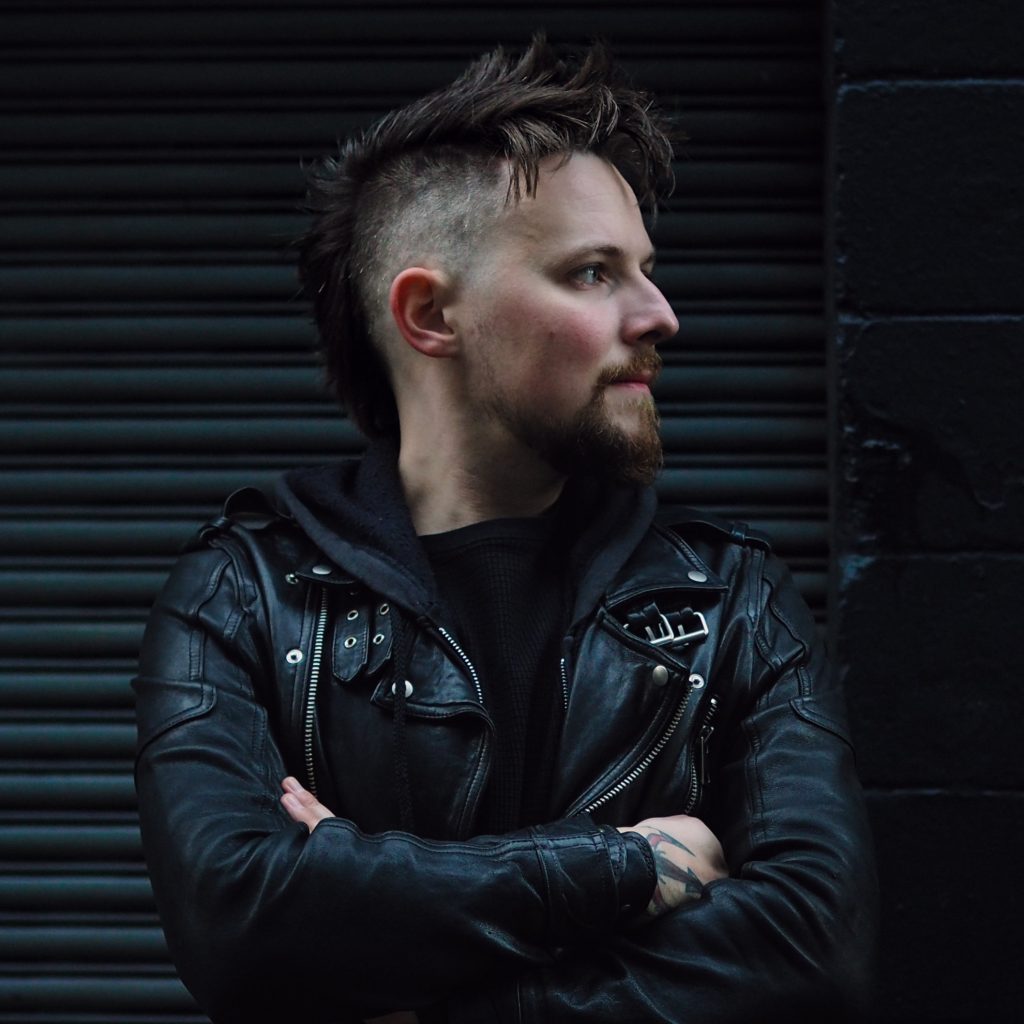
About Konn Lavery
Konn Lavery is a Canadian author whose work has been recognized by Edmonton’s top five bestseller charts and by reviewers such as Readers’ Favorite, and Literary Titan.


